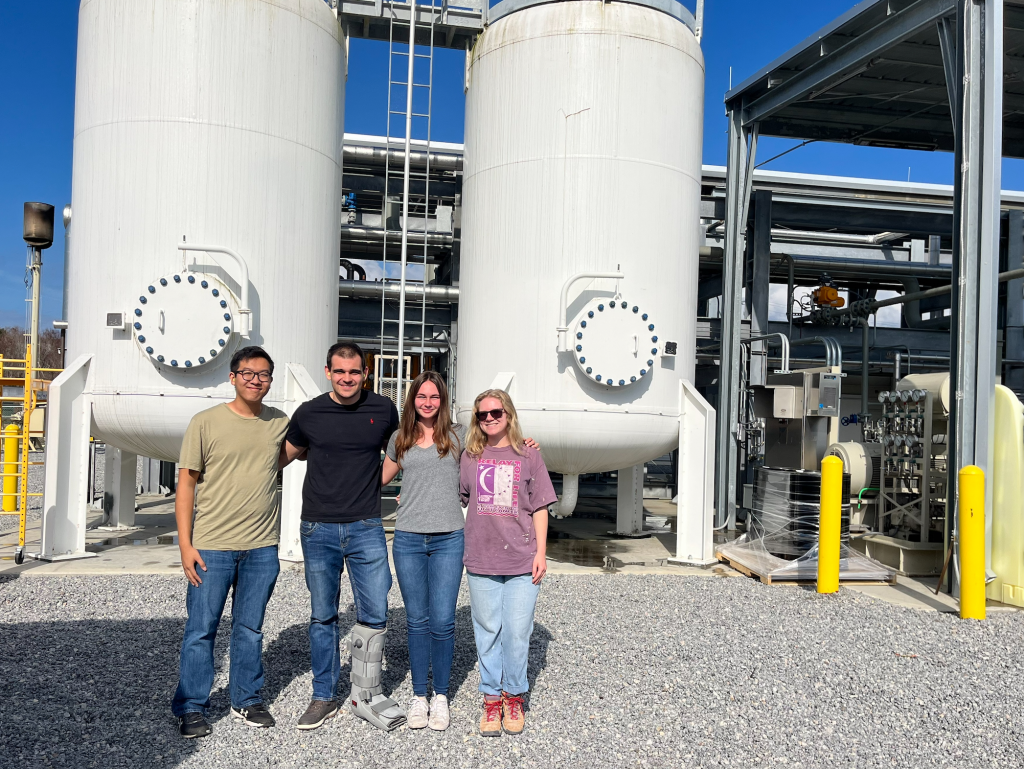
In a feat of ingenuity and teamwork, a group of University of Florida students from the Solid Waste Systems Design course placed first at a recent design competition. Their dedication and problem-solving skills propelled them to first place in the 2023 International Solid Waste Design Competition organized by the Solid Waste Association of North America (SWANA).
The students displayed their exceptional abilities to tackle the pressing challenges of solid waste management, solidifying their position as industry leaders. This marks the second time in five years that UF emerged as undefeated champions. The team, comprised of students from the Engineering School of Sustainable Infrastructure & Environment (ESSIE), also claimed the Best Presentation Award during the Awards Ceremony and Networking Event held in April.
This annual competition tasks participants with finding solutions to the daily struggles that solid waste professionals face. This year, students were challenged with comparing two options for managing organic waste in an unidentified county.
“The county was considering either separating the organic waste at homes and diverting it to a composting facility or installing a renewable natural gas plant that can capture the organic waste decay’s gas to be converted to energy,” said Julie Bielecki, a senior in environmental engineering and competition participant. “To help the county decide, we did a cost-benefit analysis of the economic, environmental and social impacts each method resulted in.”
The team spent three months, roughly 700 working hours, interviewing professionals in the field, visiting facilities in Florida and conducting extensive research to solve this issue. Since there were two methods, they explored both options. The first method focused on separating organic materials, like food scraps and garbage, and using them to make compost. The second solution sends organic waste to a landfill, where it decomposes and produces landfill gas, which can then be used as a renewable natural gas.
The team expressed appreciation for Steven Laux, P.E., a professor of practice in the Department of Environmental Engineering Sciences within ESSIE, who served as a faculty advisor by providing them with insights on waste management solutions. Professor Laux has over 35 years of experience in solid waste management system design.
“We really appreciate the support of Professor Laux and the other industry professionals who shared their time and knowledge to help us learn about organics composting and RNG production,” said Hannah Sackles, an environmental engineering master’s student and team member.
In addition to Bielecki and Sackles, the team included Jordan Magnuson, Kevin Nguyen and Sean Plechy, all students within the Department of Environmental Engineering Sciences. The group explored four scenarios to consider which would have the most positive economic, environmental and social impacts on the county. After completing their evaluations, they suggested implementing a renewable natural gas facility would be the best option. To view their complete presentation, visit the SWANA Competition website.
“We are very honored and proud to have won First Place and Best Presentation among a great group of student teams from the U.S. and Canada,” Sackles said.
In 2015, SWANA was created to give students an opportunity to solve solid waste management issues, network with professionals in the field, and receive support from professionals and faculty. During the competition, participating teams present a poster, report and virtual presentation of their findings.
—
Reba Liddy,
ESSIE Marketing and Communications Specialist